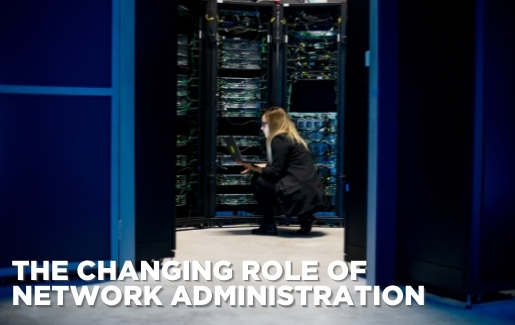
A common question people have related to CompTIA certifications is how to prepare for the CompTIA A+ certification. While the CompTIA A+ core series is one of the most popular IT certifications and the industry standard for launching an IT career, the answer to this question can apply to any CompTIA certifications. And the answer is – there is no one answer. How to prepare for a CompTIA certification exam depends on what will best help you understand and retain the information to pass the certification exam and to use throughout your IT career.
There is a whole world of study materials out there to choose from, so keep reading to learn how you can best prepare for a CompTIA certification exam.
Developing CompTIA certification exams requires input from industry professionals and oversight to ensure a high level of accuracy and impartiality.
Learn more.Instructor-Led Training or Self-Study?
First it’s important to establish if you learn best with instructor-led training or through self-study. Some people can go through a book start to finish, practice the hands-on skills they’ve read about and come out of it with a working knowledge of everything inside. Others learn better by sitting in a classroom, guided through exam objectives by an instructor in a structured learning environment to feel ready by the time the exam rolls around. There are also many, many gradations in between, and they’re all perfectly good ways to approach preparing for a CompTIA exam.
But as a first step, you’ll want to decide if you need an instructor-led training to guide you through the material for a given certification or if you can prepare on your own. If you need help determining what type of learner you are, take this quiz.
Instructor-Led Training
There are many options for instructor-led training, depending on the certification you’re going for.
- Guided online learning: Today, online training is just as popular - and beneficial - as in-person training. CompTIA offers live online training for CompTIA A+, CompTIA Network+, CompTIA Security+ CompTIA Cybersecurity Analyst (CySA+), CompTIA Data+, CompTIA PenTest+, CompTIA Project+ and CompTIA Linux+. CompTIA authorized partners offer additional online courses. (Read more about this below.)
Online learning options can be cheaper. They are also often self-paced, so they allow for a student to benefit from the expertise of a remote instructor while still being able to fit the class into an otherwise busy schedule. This option is popular for those who are already working or have busy family lives. - Workforce development programs: Government and nonprofit workforce programs see the importance of having more skilled workers in the workplace, for the benefit of individual job seekers and society at large. People in certain economic circumstances may be able to benefit from these programs.
Often, these programs are offered for free or at a rate drastically reduced from traditional IT education. These prep courses cater to the professional needs of people seeking credentialing to help them get a foothold in an industry brand new to them. Training centers: IT training centers like New Horizons are focused on getting people certified and workforce ready as quickly and efficiently as possible. Students often benefit from skills assessments and career counseling to make sure they’re looking at the right role, and then it’s just a matter of spending three to five intensive days getting set for the exam. Many who have served in technical roles in the military benefit from these programs, which can be pricey, but are very precisely targeted.
- College courses: Getting certified in a traditional college environment can be good if you want a fully guided run-through of the material or if it’s part of your degree program. You’ll have labs, will have to hand in homework and will benefit from an instructor correcting your work and pointing you in the right direction. Some programs teach directly to CompTIA certifications and may even offer a chance to take the certification at the end of the course, when everything is fresh in your mind.
Self-Study Training
Not everyone wants – or needs – a live instructor to get prepped for a CompTIA exam. If you’re someone who is self-motivated and enjoys learning at your own pace, here are some of our recommended options for self-study training.
- eLearning: CompTIA CertMaster Learn is interactive training solution that includes flash cards and performance-based multiple choice questions, videos that demonstrate key concepts and processes, a customizable learning plan, self-assessments and analytics and reporting that highlight your learning progress.
- Virtual labs: CertMaster Labs provides hands-on experience in browser-based virtual environments that use real equipment. CertMaster Labs includes step-by-step lab guides aligned with exam objectives and pre-configured exercises that require minimal setup.
- Exam prep: CompTIA CertMaster Practice is an online knowledge assessment tool providing a practice exam, including quick knowledge assessment, adaptive learning that reinforces existing and new knowledge, personalized feedback and real-time learning analytics.
- Books, ebooks and online content: There's plenty of resources out there to help you study, and CompTIA publishes its own official study guides. You can go through the books at your own pace and keep going back to refresh your understanding. There’s also a wide variety of free, premium and paid online content, including YouTube videos, video courses and more.
The Best Way to Study for a CompTIA Exam
So, what’s the best way to prepare for a CompTIA exam? The truth is, whatever works best for you. The choice that best fits how you learn, what you can afford to do and what suits your schedule is the option to pursue. That said, choosing a variety of study tools to immerse yourself in the world of a certification and absorb the information from every angle is a great way to set yourself up for success.
Ready to get started? Download our study planning worksheet to keep you on track for certification success.
Matthew Stern is a freelance writer based in Chicago who covers information technology, retail and various other topics and industries.




8 comments
It sure was interesting when you said that the online CompTIA training is often self-paced, so it al
It sure was interesting when you said that the online CompTIA training is often self-paced, so it allows students to attend despite their busy schedules. My husband should be aware of this because he shared with me this morning that he is interested in finding a career in the IT industry. He aims to be CompTIA A Plus certified.Read full commentI'd like to find out some recommendations for note-taking for self-study, bootcamp, online training.
I'd like to find out some recommendations for note-taking for self-study, bootcamp, online training. TYRead full commentHi Luis, Thank you for reading the article and for your questions. You should check out the IT C
Hi Luis, Thank you for reading the article and for your questions. You should check out the IT Career Roadmap. Depending on where you want your career to go in IT, it is a great resources for guidance. I hope this helps. Good Luck!Read full commentHi Comptia, I'm planing to take one of your certifications, but I'm not sure where to start. I'm cur
Hi Comptia, I'm planing to take one of your certifications, but I'm not sure where to start. I'm currently working as an IT Assistant and I'm on the field for more than 10 years. I'm not sure if I start from the A+ or if I should "jump in" directly to Network +... and Security +. I'd like your advice on this please. Thank you for your answer and have a nice day. Best regards LSRead full commentHi Bonita, Thank you for reading the article and for your interest in Security+ 601. You can fin
Hi Bonita, Thank you for reading the article and for your interest in Security+ 601. You can find more information on the training and the exam here: https://www.comptia.org/certifications/securityGood Luck on your journey!Read full comment
I am interested in taking the Sec+ 601 self course and exam.
Hi, Phani! Thanks for your comment. CompTIA A+ is a great certification for those looking to sta
Hi, Phani! Thanks for your comment. CompTIA A+ is a great certification for those looking to start their IT careers. While there aren't any requirements, we do recommend that you have 9 to 12 months of hands-on experience, either in a lab or on the job. You can learn more about CompTIA A+ in this article: https://www.comptia.org/blog/the-new-comptia-a-your-questions-answered Good luck!Read full commentHi, Comptia What is the minimum qualification to do comptia A+ certification.